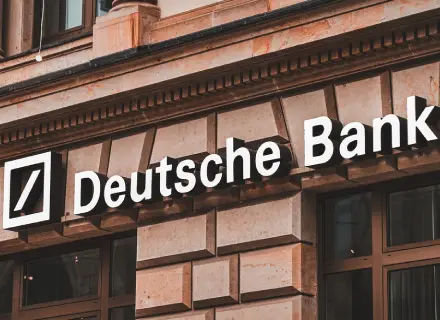According to the CEO of Deutsche Bank, the biggest lender in Germany may close some of its operations after the fourth quarter, as the company’s full-year profit dropped more than anticipated, with restructuring expenses and legal requirements eroding investment banking revenue gains.
A major cost target was also dropped by Deutsche Bank, but they still announced plans to repurchase 750 million euros (USD 780.90 million) worth of shares. Christian Sewing, the CEO, set several ambitious profit and cost targets for the once-troubled bank, and the results set the stage for a pivotal year. A few analysts have expressed doubt that Deutsche will accomplish all of its objectives.
“We have always said that 2025 will be decisive for us. At the end of this year, we will be judged by whether we have been successful with our transformation and growth strategy,” Sewing wrote in a memo to employees.
According to the CEO, the bank has started to consider modifying its plan for 2026 and beyond. Some businesses may close, and specifics will be revealed later in 2025.
Deutsche Bank has changed its target for this year’s cost-to-income ratio from less than 62% to less than 65% to make investments. When questioned about whether he would consider staying for another term, Sewing, who has been the bank’s leader since 2018, said he was still focused on this year’s goals.
The fourth-quarter net profit attributable to shareholders was 106 million euros, down from 1.2 billion euros a year earlier and below analyst expectations of roughly 380 million euros. Profit for the full year missed forecasts of almost 3 billion euros, dropping from 4.21 billion in 2023 to 2.70 billion.
However, revenue from buying and selling fixed-income securities and currencies rose 26%, beating analysts’ estimates for a 17% increase. Income in Deutsche Bank’s unit advising on deals and stock and bond sales rose 71% as investments in the business paid off.
Pretax profit fell short of estimates amid a 14% jump in costs, with Deutsche Bank also raising its guidance for expenses as a share of income in 2025. Sewing wants to balance cost controls with investments in growth as he eyes fulfilling the pledge to return more than 8 billion euro to shareholders over the medium term. Under his watch, the German lender has now refocused its strengths in fixed-income trading and corporate banking, while building up the advisory business to boost fee income.
Deutsche Bank is also planning 2.1 billion euro in capital distributions in 2025, including 1.3 billion euro in dividends for 2024 and 750 million euro in share buybacks for which it has already received regulatory approval.
Deutsche Bank’s trading unit’s performance has been driven partly by a recovery of the venture’s US rates business, the trading in government bonds and derivatives, as well as a strong financing business, which supplies credit to multinational companies.
Revenue declined in the corporate and private banks, where falling interest rates and a weak economy weighed on income. Provisions for souring loans, at 420 million euro in the quarter, were roughly in line with estimates. The lender now expects such provisions to moderate in 2025, after it had to raise its guidance twice in 2024 in a sign that Germany’s economic troubles were spilling over into its loan book.

